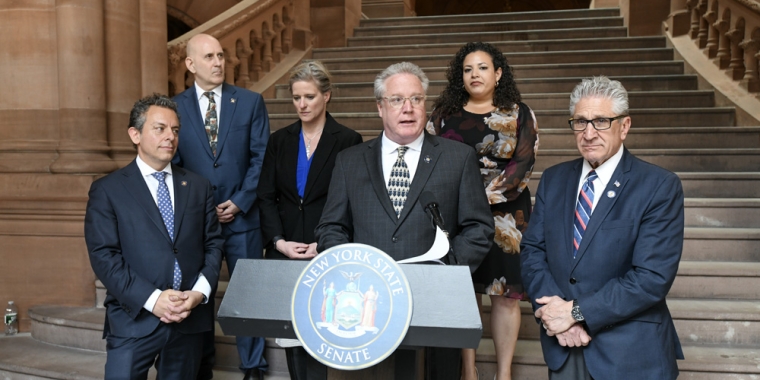
Senator Bill Weber Joins Senator Nathalia Fernandez in Bipartisan Effort to Reform Albany's Budget Process
May 17, 2023
-
ISSUE:
- Budget Bills
- Improving Government Transparency
- 2023-2024 State Budget; transparency and accountability

Albany, NY - Senator Bill Weber, a longtime advocate for good governance and fiscal responsibility, is addressing the flaws in Albany's budget process. Following his active involvement in this year's budget hearings, negotiations, and votes as a State Senator, Senator Weber has reached a firm conclusion: the budget process requires more than just reform—it demands a comprehensive overhaul that can only be achieved through amending the state constitution.
One of the primary causes of this year's month-long delay in finalizing the budget was not financial debates but rather the Governor's insertion of policy proposals unrelated to fiscal matters. Senator Weber stresses that the budget's main purpose is to allocate funds to state agencies and programs, not to serve as a platform for housing policy or other non-fiscal related changes.
With his background as a Certified Public Accountant (CPA) and Chief Financial Officer (CFO), Senator Weber brings invaluable expertise to the discussion on budgeting processes. New York State's budgeting approach differs significantly from other organizations, companies, and local governments, necessitating urgent action to rectify the system's inherent flaws.
Senator Weber's unwavering commitment to good governance extends beyond party lines. To address these systemic issues, he has joined a bipartisan coalition of senators as a co-sponsor of S.2062, a bill introduced by Senator Nathalia Fernandez. This vital legislation prohibits the governor from including non-fiscal policies and programs in the budget, fostering a more focused and efficient budgetary process. Additionally, S.2062 proposes a constitutional amendment, allowing all New Yorkers to vote on ending this dysfunction and creating a system that establishes true checks and balances.
“Transparency is a cornerstone of effective governance,” said Senator Weber. “I firmly believe that policy debates must be conducted openly rather than behind closed doors. The budget, composed of multiple bills, should allow for individual consideration and votes, enabling senators to support aspects aligned with their principles while withholding support from those with objectionable policies.”
related legislation
Share this Article or Press Release
Newsroom
Go to NewsroomSenator Bill Weber's Winter Coat Drive
October 10, 2025


